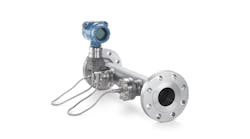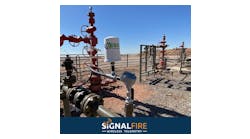Amtrak and the Oklahoma and Texas state transportation departments tested the first renewable biodiesel fuel blend to power a daily interstate passenger train between Oklahoma City and Fort Worth. Amtrak received a $274,000 grant from the Federal Railroad Administration to carry out the research project in partnership with the Oklahoma Department of Transportation (Okla. DOT) on the daily Heartland Flyer train operated by Amtrak with state support from both Oklahoma and Texas. The biodiesel blend includes beef byproduct and is provided by a Texas-based vendor. In previously conducted stationary locomotive engine testing, the biodiesel blend known as B20 (20% pure biofuel and 80% diesel) reduced hydrocarbons and carbon monoxide each by 10 percent, reduced particulates by 15 percent and sulfates by 20 percent. Detailed measurements will be taken on the P32-8 locomotive at the end of 12 months so any impact of the biodiesel on valves and gaskets can be measured. Amtrak will collect locomotive exhaust emissions data for analysis in accordance with U.S. Environmental Protection Agency locomotive exhaust emissions federal test protocols. "Quality of life issues are increasingly important. The Heartland Flyer has always provided high-quality service and being the first to test this program is another testimony in doing that by trying to improve the environment," said Oklahoma Secretary of Transportation – more – Amtrak and the Oklahoma and Texas state transportation departments today announced the nation’s first-ever test of a cleaner and renewable biodiesel fuel blend to power a daily interstate passenger train between Oklahoma City and Fort Worth, with the aim of reducing greenhouse gas emissions and the use of foreign oil. Amtrak received a $274,000 grant from the Federal Railroad Administration to carry out the research project in partnership with the Oklahoma Department of Transportation (Okla. DOT) on the daily Heartland Flyer train operated by Amtrak with state support from both Oklahoma and Texas. The biodiesel blend includes beef byproduct and is provided by a Texas-based vendor. In previously conducted stationary locomotive engine testing, the biodiesel blend known as B20 (20% pure biofuel and 80% diesel) reduced hydrocarbons and carbon monoxide each by 10 percent, reduced particulates by 15 percent and sulfates by 20 percent. Detailed measurements will be taken on the P32-8 locomotive at the end of 12 months so any impact of the biodiesel on valves and gaskets can be measured. Amtrak will collect locomotive exhaust emissions data for analysis in accordance with U.S. Environmental Protection Agency locomotive exhaust emissions federal test protocols. "Quality of life issues are increasingly important. The Heartland Flyer has always provided high-quality service and being the first to test this program is another testimony in doing that by trying to improve the environment," said Oklahoma Secretary of Transportation Gary Ridley, in a prepared statement. "We are truly proud that Oklahoma is a part of this innovative way to improve our quality of life.” At events timed with the train’s morning departure from Oklahoma City and noontime arrival in Fort Worth, officials attached a version of the Amtrak "green seal" to the 3,200-horsepower locomotive that powers the train and compared samples of diesel and biodiesel fuels. Oklahoma’s environment secretary issued a statement in support and state’s agriculture secretary attended the Oklahoma City event.


